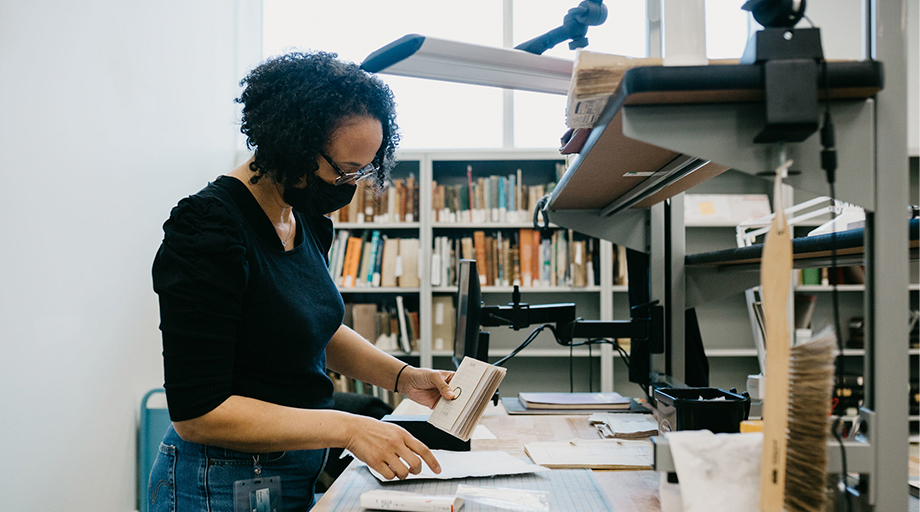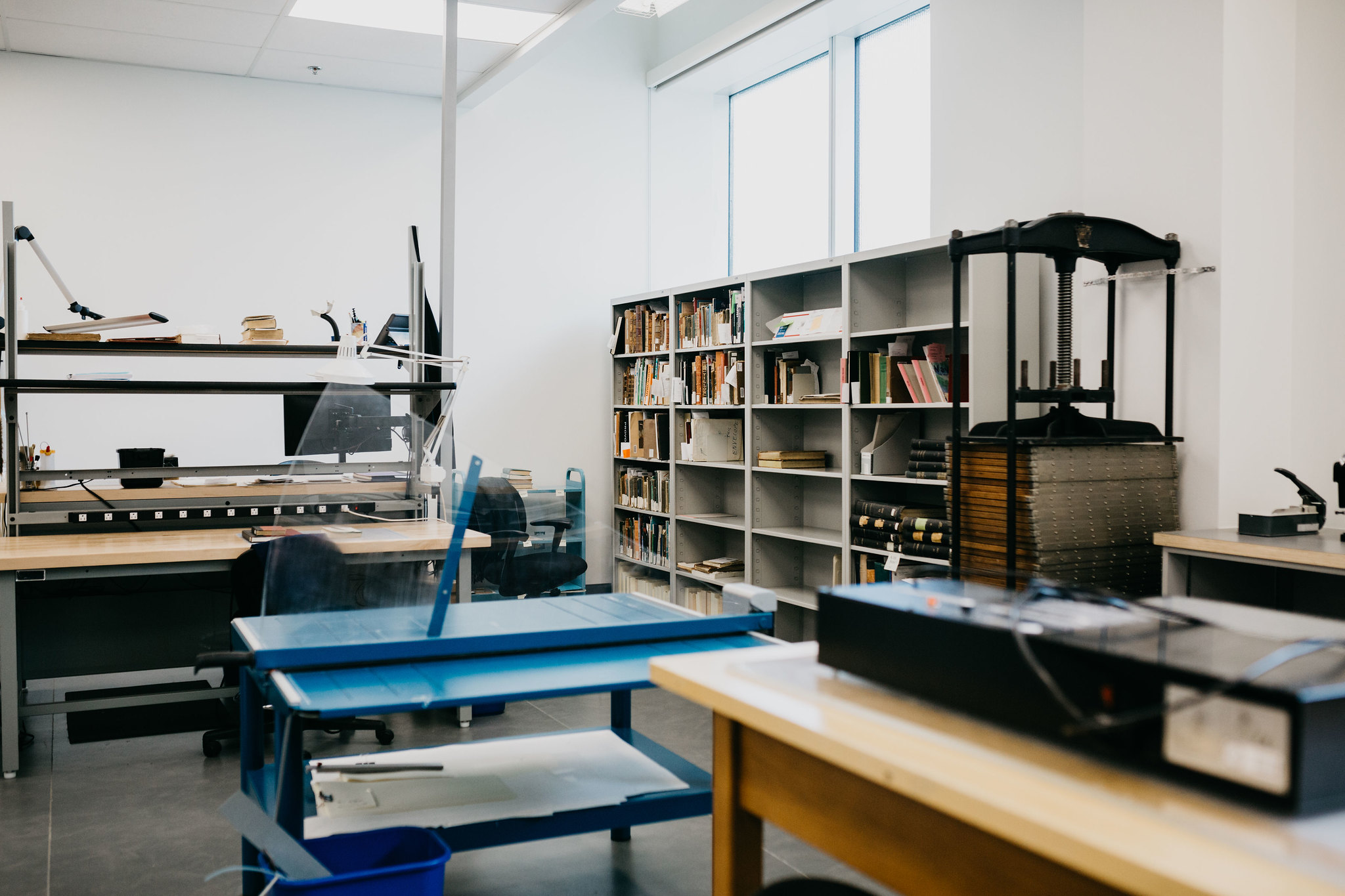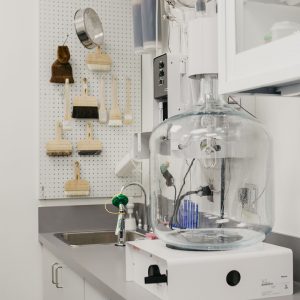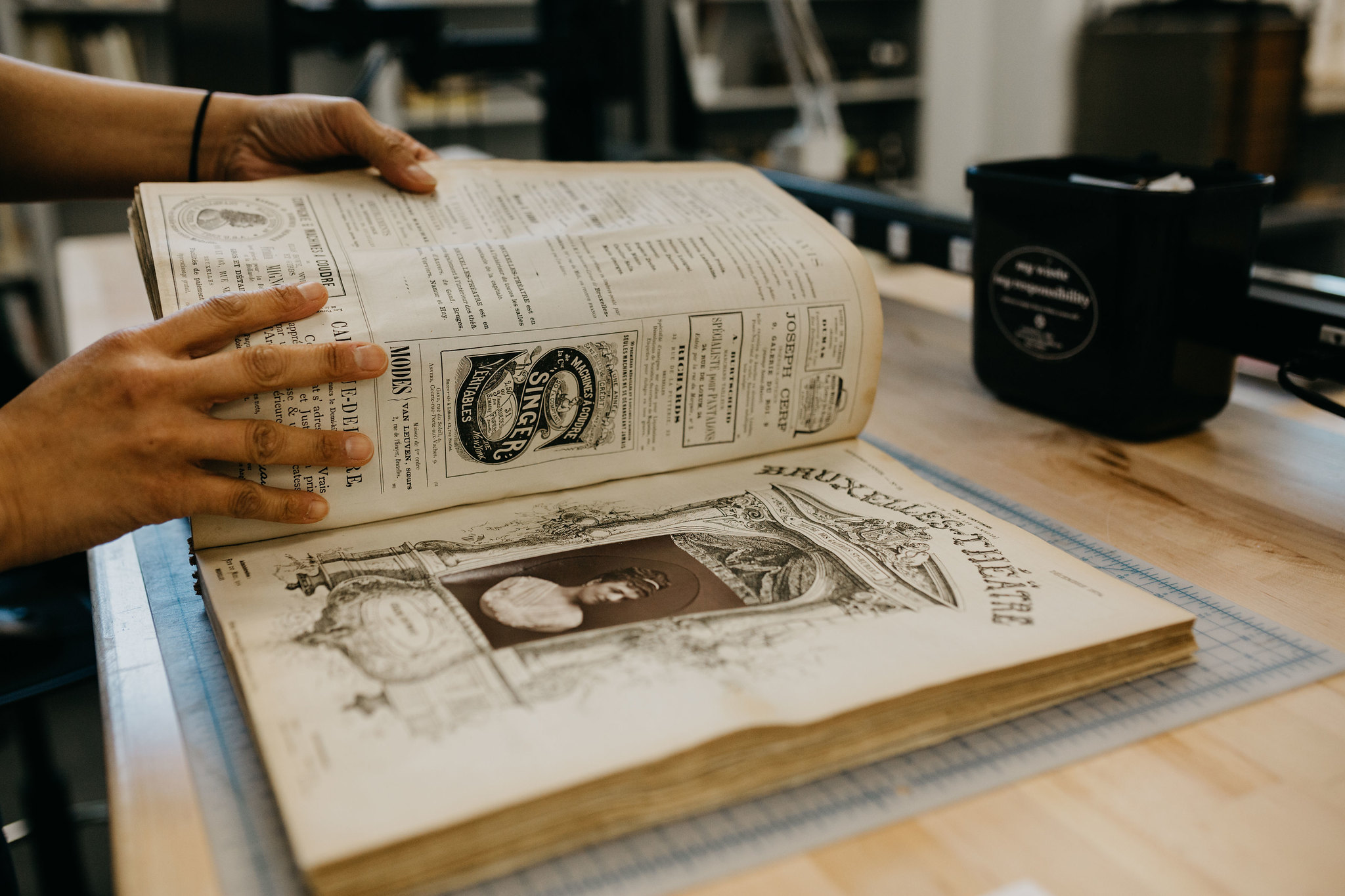
The Irving K. Barber Learning Centre (IKBLC) is now home to UBC Library’s newest specialized space dedicated to the conservation, preservation and treatment of the library’s physical materials. Completed in early September 2021, the Conservation Space is staffed by conservator Anne Lama, conservation technician Hannah McKendry, and student staff who ensure that the library’s circulating collections and rare materials will stand the test of time.
Rudi Traichel, who oversees the library’s preservation services as a technical services librarian, says that the Conservation Space has been a long-held dream for his team and its realization an important milestone for the library.
“While the actual construction started in late 2021, that was after a number of years, and a lot of discussions and planning,” says Traichel, noting that a key factor in moving forward with the project was finalizing a location, which was chosen with care to position the Space in close proximity to Rare Books and Special Collections (RBSC) and University Archives.

Work benches and equipment Conservation Space at the Irving K. Barber Learning Centre.
Expanding the scope of preservation work at UBC
While the project required a long journey of reflection and a year of preparation, Lama is excited by the result, which has been transformative for the work she and McKendry are able to carry out.
“The Conservation Space is an open window to communicate to the community the variety of expertise available at UBC Library and how we are working hard to facilitate access to the library’s collections,” says Lama.
UBC’s Preservation Unit was originally established in January 2011 and integrated into the Technical Services Department in June 2012. While the team worked in an open space within Technical Services in the Woodward Library building, and in a small office at Rare Books and Special Collections (RBSC), they were often limited by the close quarters.

View of the water filtration system and peg board with brushes in the Conservation Space.
“With preservation, the work is slow and methodical, and there’s often a lot of time where a book needs to sit and dry for several hours after treatment. Now I can let my work dry on another surface and start a new project on my workbench,” says McKendry. “Our materials were stored in several different areas across two branches. Having all our supplies and materials in one spot is so convenient, and definitely more efficient.”
The new Conservation Space significantly expands the scale and scope of work that Lama and McKendry can take on, with access to large worktables, storage space, better security infrastructure, and new equipment.
“The quarantine room, for example, helps to isolate documents compromised by mold; in the wet room, we perform more elaborate conservation work,” says Lama. “We now welcome larger projects as we can work on more items at the same time. We can spread them around and keep the rare materials overnight during the conservation treatment because the space is under alarm.”
While the Space is not open to drop-in visitors, the team has started to offered class tours as of March 28, when they hosted a small class of students from the Museum of Anthropology (MOA).
Treating materials from across the library
Throughout the fall term, Lama has been kept busy by several projects, not least of which was the much-touted arrival of the Shakespeare First Folio. “We had to evaluate [the Folio’s] condition and worked with designers to create the cradle for the temporary exhibition at the Vancouver Art Gallery,” says Lama.
Although much of the work at the Conservation Space focuses on materials from RBSC and on collaborative projects with Digital Initiatives, Lama and McKendry’s work includes materials from all branches.
“My favourite project [at the moment] is a book of Brussels theatre pamphlets from the mid-1870s. Each pamphlet contains a photo of an actor, often dressed in a dramatic stage costume,” says McKendry. “This is a large book with fragile pages and there have been many tears to repair. The extra space in the lab, plus easy access to all supplies, has made the repair process much more efficient.”

View of the work-in-progress on a selection of Brussels theatre pamphlets at the Conversation Space.
Strengthening international partnerships
“The Conservation Space really represents the beginning of something exceptional and offers opportunities for us to build up our level of expertise by making important relationships with our international colleagues in this area,” says Sheldon Armstrong, Associate University Librarian, Collections.
UBC Library’s partnership with Fudan University in Shanghai, China, is one such relationship, which began in November 2019 with a signed Memorandum of Understanding and has flourished over the intervening years. Armstrong looks forward to eventually welcoming an exchange of conservators with Fudan University to deepen each institution’s understanding of western and eastern conservation techniques.
HI,
Great and interesting publication!
Bravo to Anne and the team !